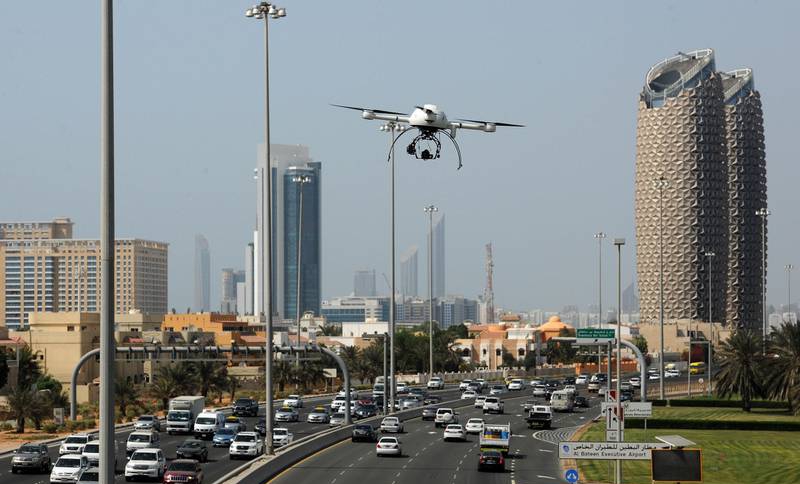https://youtu.be/IGv256wTqsE
The Technology Innovation Institute, the applied research pillar of Abu Dhabi’s Advanced Technology Research Council, has opened a motion-capture testing ground to conduct real-world scenarios with drones in an augmented reality or mixed reality environment.
Simulation is key, according to the research team, because unleashing a swarm of cloud-connected drones would be “too large, too dangerous or too time consuming to construct in reality”.
With reliance on drones continuing to increase, the facility aims to develop technologies that will limit malicious cyber attacks in the air, said Dr Shreekant ‘Ticky’ Thakkar, chief researcher at the Secure Systems Research Centre.
“Our aim at SSRC is to develop breakthrough security technologies to safeguard systems that may be vulnerable, and this can include unsecure drone systems which may pose various threats to organisations’ or even individuals’ privacy and safety,” he said. “It’s essential to make drone platforms more resilient and secure.”
The motion capture system proposed for Abu Dhabi is being built to test and improve on the communication, navigation and control capabilities achieved by engineers to date. The facility is being developed in collaboration with Purdue University, in the US, which is host to the largest indoor motion capture facility in the world.
“As smart cities evolve, it will be critical to ensure the safe operation of drones in an urban setting,” said James Goppert, managing director of the Purdue UAS Research and Test Facility.
The Abu Dhabi facility will take programming for drones on a gradual progression from test simulations to real-world scenarios, he said, and be ready for a range of vehicles, weighing from 10 kilograms all the way up to 1,000-kilogram vertical take-off and landing vehicles.
TII, where the new testing facility is being developed, was established in 2020 to position Abu Dhabi and the UAE as a centre for innovation and advanced technologies.
The institute is working with more than 20 international universities on 25 long-term collaborative projects. The initial seven focus areas of the institute are quantum research, autonomous robotics, cryptography, advanced materials, digital security, directed energy and secure systems.
Source: The National News

